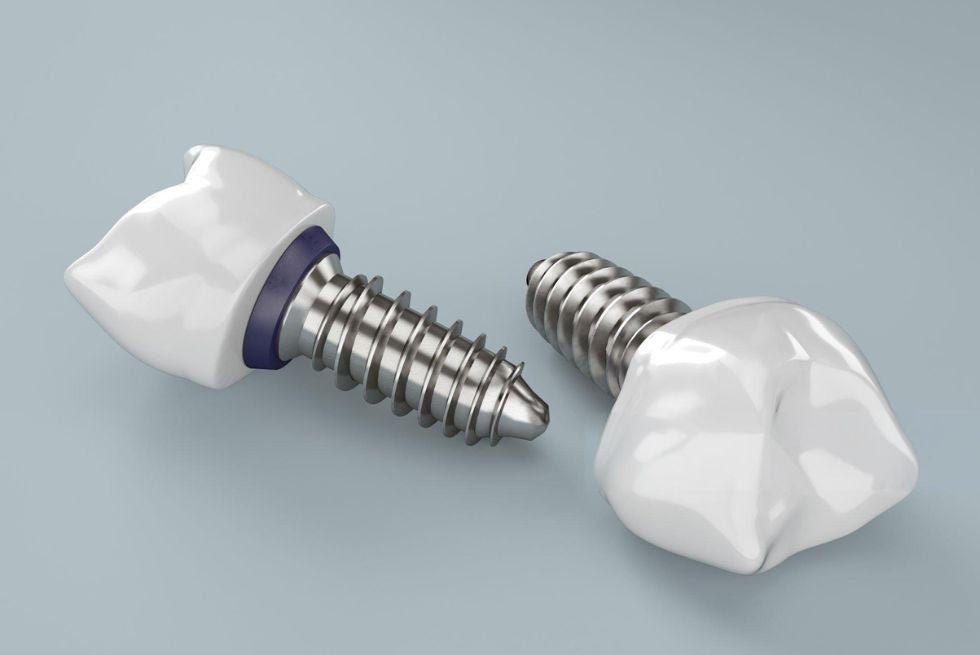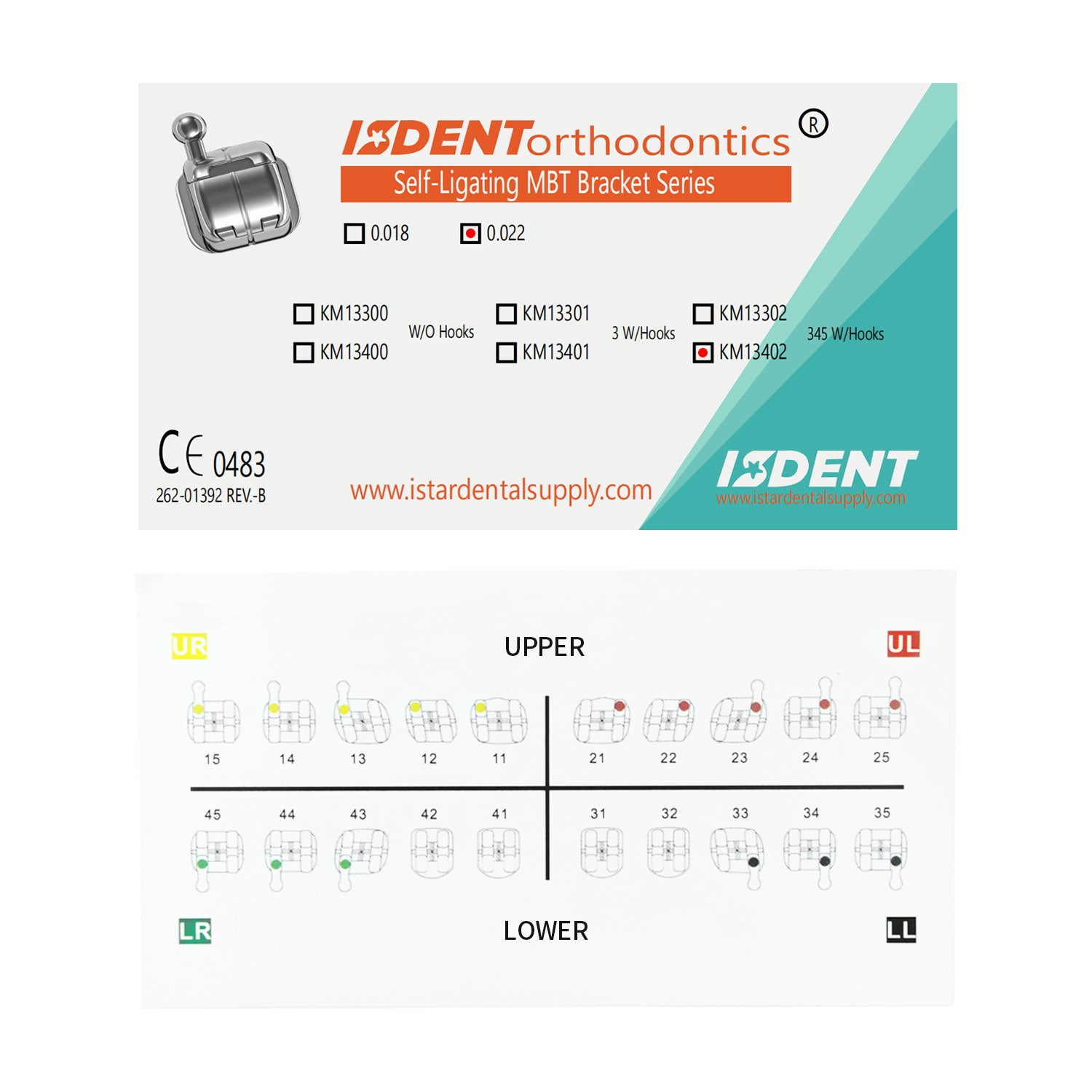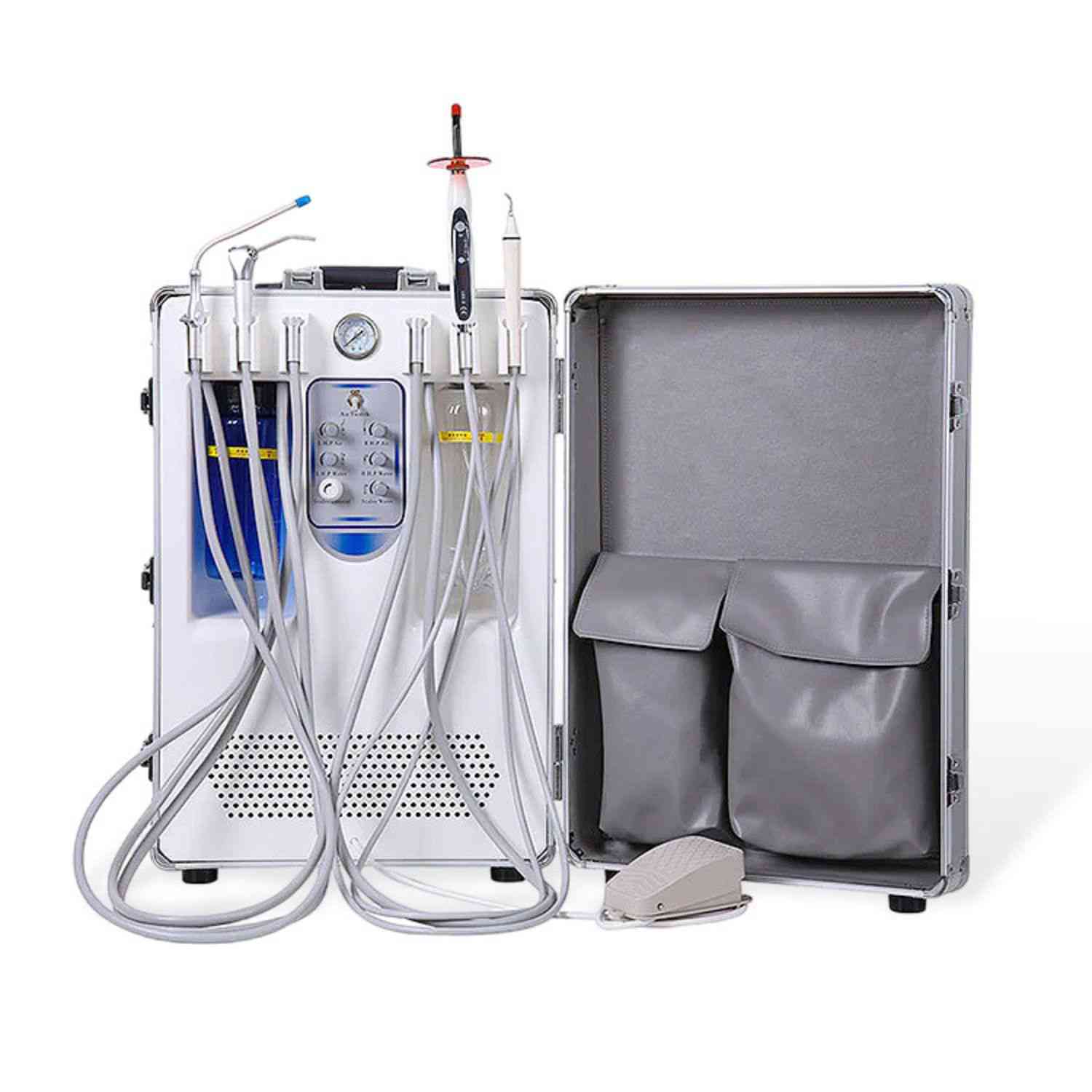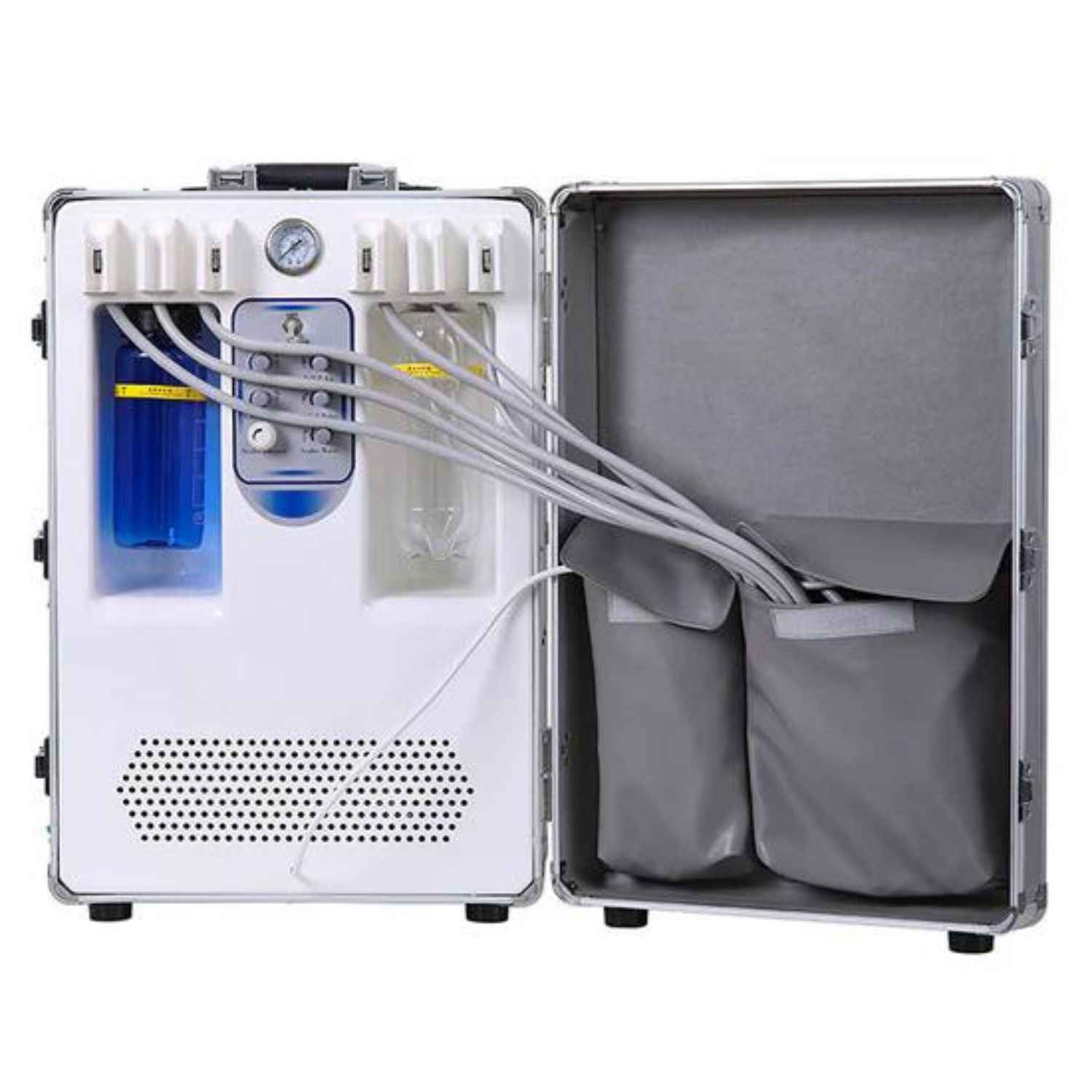Can You Really Get Dental Implants on the NHS? Your Guide to NHS Dental Treatment
"Can I get dental implants on the NHS?" It's a great question. We see amazing smile makeovers on TV and know that a dental implant can change a person's life. But we also know they can be very expensive. So, we wonder if the NHS will help.
In this article, you can get the honest, straight-to-the-point answer. We will look at what a dental implant is, who can get one on the NHS, and what to do if you can't. If you have missing teeth and want to know your options, this guide is for you. You will learn the facts and feel more in control of your dental health.
What Are Dental Implants and Why Are They So Popular?
Before we talk about cost, let's talk about what we're dealing with. A dental implant is basically a replacement for the root of a tooth. Think of it as a small, strong screw, usually made of titanium, that a dentist surgically places into your jawbone. Once this implant is in place and has healed, a new, custom-made tooth (called a crown) is attached to it. The end result is a strong, stable tooth that looks and feels just like a real one. This is why a dental implant is such a great solution for replacing missing teeth.
So, why do people want them so badly? Well, I’ve seen firsthand how much they can help. Unlike dentures, a dental implant doesn't move or slip. You can eat your favorite foods with confidence. Unlike a bridge, a dental implant doesn't need support from the healthy teeth next to it. This helps protect your other teeth. Dental implants have become the gold standard for tooth replacement because they are strong, long-lasting, and look natural. For many people, a dental implant is the best way to fix a gap in their smile. The demand for implants is high for good reason.
A dental implant can also help protect your jawbone. When you lose a tooth, the bone around it can start to shrink. This can change the shape of your face over time. Because the implant joins with your bone, it keeps the bone strong and healthy. The stability a dental implant provides is amazing. Implants offer a permanent solution to tooth loss, and that peace of mind is priceless for many. This is why so many people with missing teeth consider dental implants as their first choice.
Are Dental Implants Covered by the NHS? The Simple Answer.
Do dental implants on the NHS exist? The simple answer is yes, but it is very, very rare. For most people, dental implants are not available on the NHS. The NHS provides dental care that is clinically necessary to keep your mouth, teeth, and gums healthy. A dental implant is often seen as a cosmetic treatment, not an essential one.
You’ll know that dental services from the NHS focus on what is needed for your overall dental health. The NHS typically offers other solutions for missing teeth, like dentures or dental bridges. These are effective and much cheaper. Because the NHS has a limited budget, it has to spend its money on essential dental care for millions of people. Expensive treatments like a dental implant are reserved for very specific cases where other options won't work.
So, while it is technically possible to get an implant via the NHS, you should not expect it to be an option for you. The vast majority of dental implants in the UK are done by private dental practices. Thinking that you can just walk into your NHS dentist and ask for a free implant will likely lead to disappointment. The criteria for NHS-funded implants are extremely strict.
What Are the Strict Criteria for NHS-Funded Dental Implants?
This is the most important part of our discussion. If dental implants are available through the NHS, who gets them? The answer is only people with a very strong clinical need. This means that the need for the implant is medical, not just to improve your smile. The criteria for NHS-funded dental implant treatment are not the same everywhere, but they usually involve serious medical situations.
The NHS offers dental implants to patients who have lost teeth due to things like trauma, such as a serious car accident, or from treatments for mouth cancer. It also provides dental implants for people who were born with missing teeth due to a genetic condition. In these cases, a regular bridge or denture might not be a possible or effective solution. The need for a dental implant has to be proven as the only good option for that person's health. Poor dental health from not brushing or gum disease will not make you eligible.
Here is a simple checklist to help you understand if you might meet the criteria for NHS-funded dental.
|
Checklist: Could I be eligible for an NHS-funded implant? |
Yes / No |
|
Did I lose my tooth or teeth due to a serious accident (e.g., a car crash)? |
|
|
Did I lose my tooth or teeth as a result of treatment for cancer in my head or neck? |
|
|
Was I born with a condition that means my adult teeth never grew in? |
|
|
Are standard options like dentures or bridges not possible for me due to a specific medical reason confirmed by a specialist? |
If you answered "No" to all of these, your chances of getting NHS-funded implants are almost zero. If you answered "Yes" to one, it is still not a guarantee, but you have a reason to discuss it with a dental professional.
How Do I Start the Process to Get Dental Implants on the NHS?
If you believe you meet the strict criteria, the first step is to talk to your regular NHS dentist. You cannot just go to a hospital and ask for an implant. Your dentist is the starting point. They will examine your mouth and your overall dental health. They will decide if your case is strong enough to be referred to a specialist at a hospital for a consultation.
If your dentist agrees that you might be a candidate for an NHS implant, they will write a referral letter. This letter will explain your situation in detail. You will then be put on a waiting list to see a hospital consultant. This wait can be very long, sometimes many months or even years. When you finally see the consultant, they will do their own detailed assessment. They make the final decision. They will decide if a dental implant is clinically necessary for you.
Remember, even with a referral, there is no guarantee. The hospital consultant has to agree that yours is an exceptional case. They will check if getting dental implants through the NHS is the right treatment for you. If they approve the funded dental implant treatment, you will be placed on another waiting list for the surgery itself. The process to get dental implants on NHS is long and has many steps. It requires a lot of patience.
Why Might I Be Declined for Dental Implants via the NHS?
It is very likely that you will be declined for dental implants via the NHS. The main reason is that your case may not be seen as "clinically exceptional." If you have missing teeth due to normal tooth decay or gum disease, your application will almost certainly be rejected. The NHS only provides dental care that is clinically essential, and in these cases, dentures or a bridge are considered good enough.
Another reason for being declined for dental is your overall health. To get a dental implant, you need to have healthy gums and a strong jawbone to hold the implant. If you have severe gum disease or bone loss, you may not be a good candidate for the surgery. Smoking can also be a major reason for refusal, as it makes it much harder for an implant to heal properly. The NHS provider needs to be sure the treatment will be successful.
Finally, the budget of your local NHS trust plays a big part. Each area has a certain amount of money for specialized dental treatments. There is a huge demand for implants, and there simply isn't enough money to provide an implant for everyone who wants one. This is why the criteria are so strict. They have to save the few available slots for the people who need a dental implant the most for medical reasons.
What Are My Options If the NHS Won't Cover My Dental Implant Treatment?
For nearly everyone, this is the reality. The NHS will not cover the cost of your dental implant. But don't lose hope! This is where private dental care comes in. Almost all dental implants in the UK are done privately. This means you pay for the treatment yourself. While this sounds expensive, there are ways to manage the cost of treatment.
Many private dental clinics offer finance options. This allows you to spread the cost of your dental implant treatment over several months or years. It makes the payment much more manageable. Think of it like paying for a new car or kitchen in monthly installments. This can make implants more affordable for many people. When you go for a private consultation, they will almost always discuss dental finance with you.
You can also look into dental insurance plans. Some plans may cover a portion of the cost of an implant, though you should read the details very carefully. The main benefit of going private is choice and speed. You can choose your dentist, and you won't have to wait on long NHS lists. You can start your journey to a new smile much faster. A private dental implant is an investment in your health and confidence.
How Much Does Private Dental Implants Cost in the UK?
This is the million-dollar question, isn't it? The cost of dental implants can vary a lot. It depends on where you live, the experience of the dentist, the type of implant used, and how much work you need. A single dental implant can cost anywhere from £2,000 to £4,000. This price usually includes the implant itself, the surgery, and the final crown (the new tooth).
If you need more than one implant, the cost will go up. For example, if you need to replace a full arch of teeth with implants, the cost can be £15,000 or more. It sounds like a lot of money, and it is. However, it's important to ask for a full breakdown of the cost of dental implants from any dental clinics you talk to. Make sure there are no hidden fees. A good clinic will be very clear about the price.
When you think about the cost, also think about the value. A dental implant can last a lifetime if you take care of it. When you compare that to the cost of replacing dentures or bridges every 5-10 years, the implant options can sometimes be a better long-term investment. Always get a few different quotes and explore the finance options available before making a decision.
What Other Tooth Replacement Options Does the NHS Offer?
If an NHS-funded dental implant is not an option, what will the NHS offer for your missing tooth? The most common NHS solutions are dentures and dental bridges. These are both effective ways of replacing missing teeth and are much more affordable for the NHS to provide.
A denture is a removable plate holding one or more false teeth. Modern dentures are much better than they used to be. They can look very natural. However, some people find them uncomfortable, and they can move around when you eat or talk. They also need to be taken out for cleaning. The NHS provides dental options that are functional and healthy, and dentures fit this description.
A dental bridge is used to "bridge" a gap left by a missing tooth. It involves putting crowns on the teeth on either side of the gap, with a false tooth in the middle. The bridge is cemented into place, so it is not removable like a denture. The downside is that it requires grinding down healthy teeth to fit the crowns. Your NHS dentist can explain if a bridge or denture is the right NHS dental treatment for you.
What Questions Should I Ask My Dental Professionals?
Whether you are exploring the small chance of an NHS implant or looking at private dental options, you need to be informed. You are in charge of your health. Don't be afraid to ask questions. A good dentist will be happy to answer them. This helps you make the best decision for your situation.
Here are some important questions to ask:
-
Am I a good candidate for a dental implant? Why or why not?
-
What are the pros and cons of an implant compared to a bridge or denture in my specific case?
-
What is the full cost of the dental implant treatment, from start to finish? Are there any other fees?
-
What finance options do you offer?
-
What is your success rate with dental implants? How many have you placed?
-
What does the healing process look like, and how long will it take?
-
What kind of care will my implant need in the future?
Asking these questions will give you a clear picture of what to expect. It will help you understand the cost, the process, and the long-term commitment. Remember, getting dental implants is a big decision, so take your time and gather all the information you need.
Is it Worth it to Consider Dental Implants, Even if I Pay?
After everything we've talked about, you might be wondering if it's all worth it, especially if you have to pay yourself. In my experience, for the people who get them, the answer is a big "yes." Dental implants are considered the best way to replace a missing tooth for a reason. They don't just fill a gap; they restore function and confidence.
Think about being able to eat an apple or a steak without worry. Think about smiling for a photo without feeling self-conscious. Think about not having to deal with the hassle of denture glue. A dental implant becomes a part of you. Implants are a highly effective way to improve your quality of life. The long-term benefits for your health and happiness are huge.
While the upfront cost is high, private dental implant treatment is an investment. It's an investment in your comfort, your confidence, and your overall health. If you have missing teeth, talk to a dentist, get a consultation, and learn what's possible. Even if you start by saving a small amount each month, you can create a plan to get the smile you deserve. The journey starts with that first conversation.
Summary: Key Things to Remember
-
NHS Implants Are Very Rare: Getting dental implants on the NHS is possible but only for very specific, severe medical cases, like after mouth cancer or a major accident. It is not for normal tooth loss.
-
Most People Will Need to Go Private: The vast majority of people who want a dental implant will need to pay for it at a private dental clinic.
-
The Process is Long: If you do apply for an NHS-funded implant, be prepared for a long process involving referrals and long waiting lists.
-
Alternatives Exist: The NHS will offer other good solutions for a missing tooth, such as dentures or a dental bridge.
-
Private Options Are Manageable: Don't be scared by the cost of private treatment. Many clinics offer finance options to help spread the cost over time, making a dental implant more affordable.
-
Ask Questions: Always talk to your dentist and ask lots of questions to understand all your options before making a decision.









